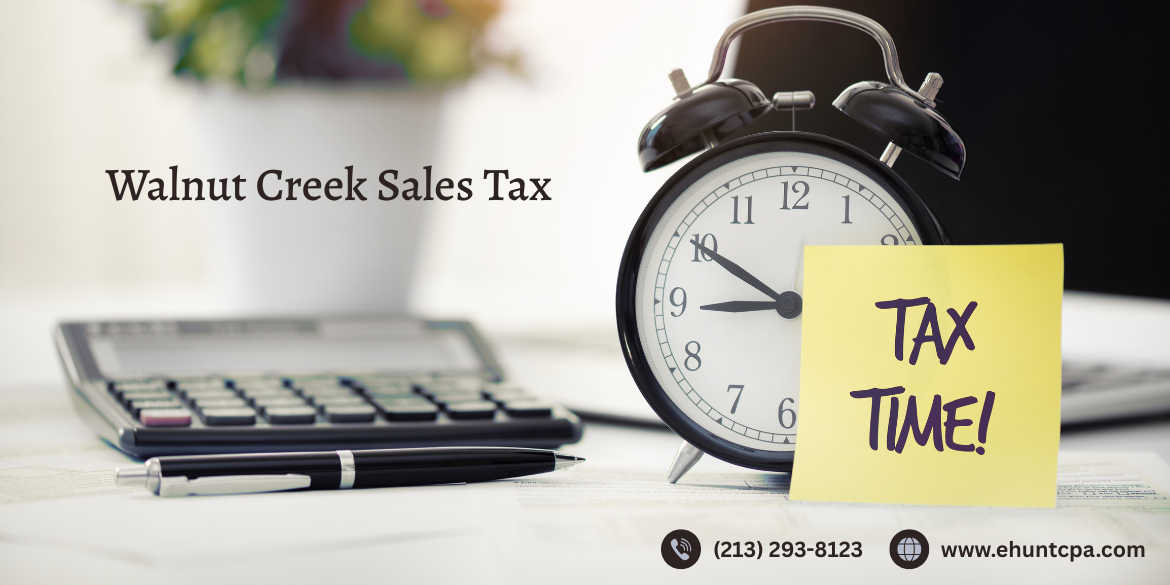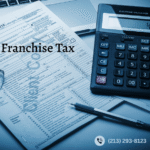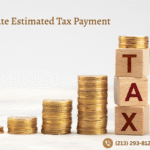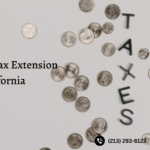
Hey there, Walnut Creek! If you have ever looked at a receipt from a purchase at Broadway Plaza or a local hardware store and wondered, “Why is the tax so high?” – you are not alone. As your local CPA firm, we frequently receive this question. Understanding sales tax is not just about the bottom line on your receipt; it’s about smart personal budgeting and, for business owners, staying on the right side of the law.
At Eric M Hunt, CPA, we’ve been helping individuals and businesses in our community make sense of these numbers for years. Let’s break down everything you need to know about Walnut Creek sales tax without the confusing jargon.
What is the Current Sales Tax Rate in Walnut Creek?
So, let’s cut to the chase. What will you actually pay at the register?
Breakdown of the Total Rate: State, County, and Local
As we move through 2025, the total sales tax rate in Walnut Creek sits at 9.75%. I always tell my clients to think of this not as one hefty tax, but as a layer cake of smaller taxes:
- The State Slice (7.25%): This is California’s base rate. It’s the same whether you are in San Diego or Redding.
- The County Slice (0.50%): This is Contra Costa County’s add-on for regional projects and services.
- The Walnut Creek Slice (1.00%): This is our local portion, which funds particular things right here in our city.
A Quick Glance: Total Sales Tax Rate for Walnut Creek Shoppers
When you add it all up, it’s simple: 7.25% (State) + 0.50% (County) + 1.00% (City) = 9.75% Total Sales Tax Rate.
That’s the number you’ll see on most of your purchases around town.
How Does Walnut Creek’s Rate Compare to Nearby Cities?
I often have clients ask if they’re paying more than their neighbors. It’s a fair question! Here’s the lay of the land for 2025:
- Walnut Creek: 9.75%
- Pleasant Hill: 9.75%
- Lafayette: 9.75%
- Concord: 9.75%
- Danville: 9.75%
- San Ramon: 9.25%
See a pattern? Most of central Contra Costa County is in the same 9.75% boat. However, you’ll catch a bit of a break in San Ramon, where the local rate is half a percent lower. For your daily coffee, it does not matter much. However, if you are buying a new refrigerator or a car, that 0.5% can add up significantly. It’s worth keeping in mind for big purchases.
Understanding the “District Tax”: What Are You Paying For?
That extra 1% we pay here in town is a point of contention for some. But in my view, it’s helpful to know what you’re getting for your money. This is not just money vanishing into the state’s coffers; it’s coming right back to our community.
Measure X: Funding Local Transportation and Roads
Measure X essentially drives our local 1% tax. You might have voted on it! This is a county-wide transportation sales tax, and the money has a specific purpose. It goes toward things we all complain about: fixing potholes on your commute, synchronizing traffic lights to reduce congestion, and maintaining our public transit.
How Local Tax Dollars Benefit Walnut Creek Residents
So, when you see that line item on your receipt, remember: you are directly investing in smoother roads for your car and safer bike lanes for your family. It’s your money working to make our daily lives in Walnut Creek a little easier.
What Items Are Taxable in California? A Detailed List
This is where it gets tricky. The rules on what’s taxed can seem arbitrary, but there’s a logic behind them.
Retail Goods, Clothing, and Electronics
The easy part: almost all physical stuff you buy is taxable. Think furniture from a showroom, a new laptop, or a pair of jeans.
The Rules for Groceries and Prepared Food
This trips up a lot of people.
- GROCERIES: Not Taxable. If you are buying raw ingredients to cook at home – like produce, meat, bread, and eggs – you won’t pay tax.
- PREPARED FOOD: Taxable. This is the key distinction. If someone else prepared it for immediate eating, it’s taxed. That restaurant meal, hot pizza, or even a prepared sandwich from the grocery store deli? All taxable.
Services: When is Labor Taxable?
Here’s a core principle: in California, pure services are generally not taxable. However, the moment a service involves handing you a physical item, tax usually applies.
- Not Taxable: My fee for doing your taxes, a lawyer’s advice, a fitness trainer’s session.
- Taxable: The plumber fixing your sink (the labor is part of installing the physical pipe), the landscaper who also sells you mulch, and a designer who gives you a printed brochure.
A Special Note on Online Purchases
The rules have changed! These days, major online retailers are required to collect the correct Walnut Creek sales tax based on the shipping address provided. If you buy something from a small out-of-state website and they don’t charge you tax, you’re legally supposed to report and pay a “Use Tax” yourself. (Most people don’t, but it’s the law, and it’s something we track for our business clients.)
Sales Tax for Walnut Creek Businesses: A Vital Guide
Alright, business owners, this is the most important section for you. Getting sales tax wrong is one of the quickest ways to get into trouble with the state. We see it too often.
How to Register for a Seller’s Permit with the CDTFA
Before you ring up your first sale, you absolutely must register for a Seller’s Permit with the California Department of Tax and Fee Administration (CDTFA). It’s a non-negotiable first step, and it’s free. We can’t stress this enough – operating without one is a recipe for penalties.
Calculating, Collecting, and Filing Your Sales Tax
Once you are in business, the cycle begins:
- Collecting: You must charge 9.75% on all taxable sales made within Walnut Creek.
- Calculating: You need to separate your taxable and non-taxable sales in your books.
- Filing & Paying: You’ll file a return with the CDTFA (usually quarterly) and send in all the tax you have collected.
Common Sales Tax Mistakes Small Businesses Make (And How to Avoid Them)
In our work at Eric M Hunt, CPA, we have helped clients clean up after some common – and costly – errors:
- The Service Confusion: Assuming your service is non-taxable without checking if a physical product is part of the deal – our Advice: When in doubt, give us a call. A quick consultation can save you a significant headache later.
- Using the Wrong Rate: Charging the base 7.25% rate instead of the full 9.75%. Our Advice: Set up your point-of-sale system correctly from day one. We can help you verify it.
- Forgetting “Use Tax” on Business Purchases: You bought a new office chair from an out-of-state website and were not charged tax. You owe that tax to California. Our Advice: We help our business clients track these purchases so they are reported correctly.
- Sloppy Record Keeping: When the CDTFA comes knocking, “I lost the receipts” is not a valid defense – our Advice: Let us help you set up a simple, bulletproof bookkeeping system from the start.
This is precisely the kind of proactive guidance we provide. At Eric M Hunt, CPA, we handle the complexities of sales tax for businesses, so you can pour your energy into what you do best – running your company.
Conclusion: Smart Shopping and Business in Walnut Creek
Whether you are a resident trying to budget or a business owner ensuring compliance, understanding Walnut Creek sales tax is a key piece of your financial picture. It’s more than just a number; it’s about community investment and legal responsibility.
If you are a business owner feeling overwhelmed by CDTFA forms and the fear of making a mistake, you don’t have to figure it out alone. Our team at Eric M Hunt, CPA, is here to guide you. We offer clear, straightforward advice and handle the compliance work for you, turning a major stressor into a checked-off task.
Ready to simplify sales tax? Reach out to us at Eric M Hunt, CPA, for a friendly, no-obligation chat. Let’s ensure your finances are in perfect order.
Frequently Asked Questions
1. Is there a sales tax on new cars bought in Walnut Creek?
Yes, absolutely. You’ll pay the full 9.75% sales tax rate on the purchase price of a new or used vehicle from a dealership.
2. What is the sales tax for a hotel stay in Walnut Creek?
That’s actually a different tax called a Transient Occupancy Tax (TOT). For Walnut Creek hotels, the TOT rate is 12%, which is separate from the sales tax you’d pay on, say, a meal at the hotel restaurant.
3. How often do sales tax rates change?
The state rate is relatively stable, but local rates can change every few years if new measures are put on the ballot. We always keep an eye on this for our clients, but it’s a good habit to check the official source once a year.
4. Where can I find the official, most up-to-date rate?
The gold standard is the CDTFA’s website. They have a fantastic Sales and Use Tax Rate Lookup tool – just plug in any address.






